Versions Compared
| Version | Old Version 2 | New Version Current |
|---|---|---|
| Changes made by | ||
| Saved on |
Key
- This line was added.
- This line was removed.
- Formatting was changed.
| Insert excerpt | ||||||
|---|---|---|---|---|---|---|
|
The ESXi connector allows organizations to bring the user, permissions, and roles data in their stand-alone VMware ESXi systems to EmpowerID, where it can be managed and synchronized with data in any connected back-end user directories.
| Note |
|---|
ESXi roles and permissions are treated as EmpowerID groups and memberships. |
Once connected, you can manage this data from EmpowerID in the following ways:
Create new users
Edit user attributes
Delete users
Create new roles and permissions
Manage roles and permissions membership
Delete roles and permissions
To create a VMWare EXSi account store in EmpowerID
On the navbar, expand Admin > Applications and Directories and then click Account Stores and Systems.
On the Account Stores page, click Create Account Store.
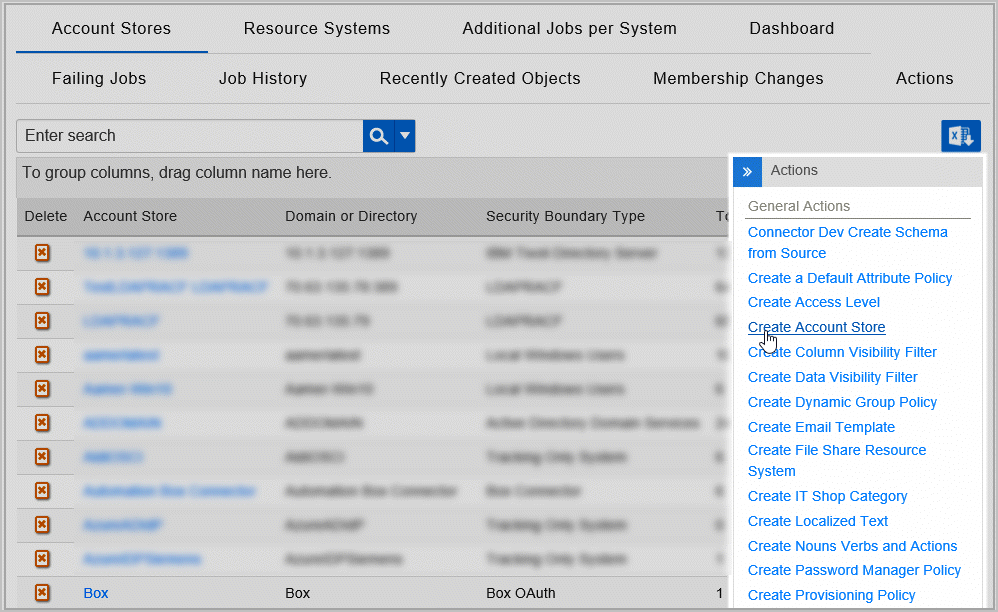
Under System Types, search for ESXI.
Click ESXI to select the type and then click Submit.
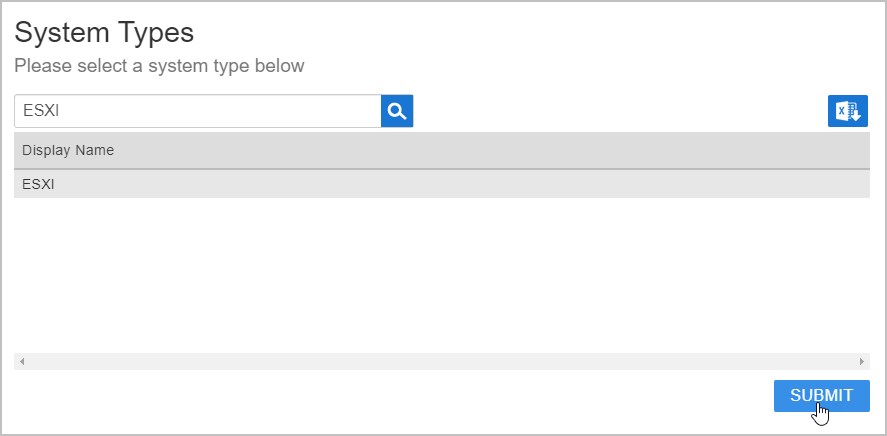
On the ESXi Settings page, provide the following values:
Server — The IP address or FQDN of your ESXi Server
Name — A name for the account store
User Name — Your ESXi administrator or root user name
Password — Your ESXi administrator or root user password
Is Remote (Requires Cloud Gateway) — This setting appears for account stores with local directories, such as Active Directory, LDAP, SAP, VMWare EXSI, etc. When enabled, this tells EmpowerID to use the Cloud Gateway Connection for that account store. The Cloud Gateway Connection must be installed on an on-premise machine. For installation information, please see Installing the EmpowerID Cloud Gateway Client.
When ready, click Submit.
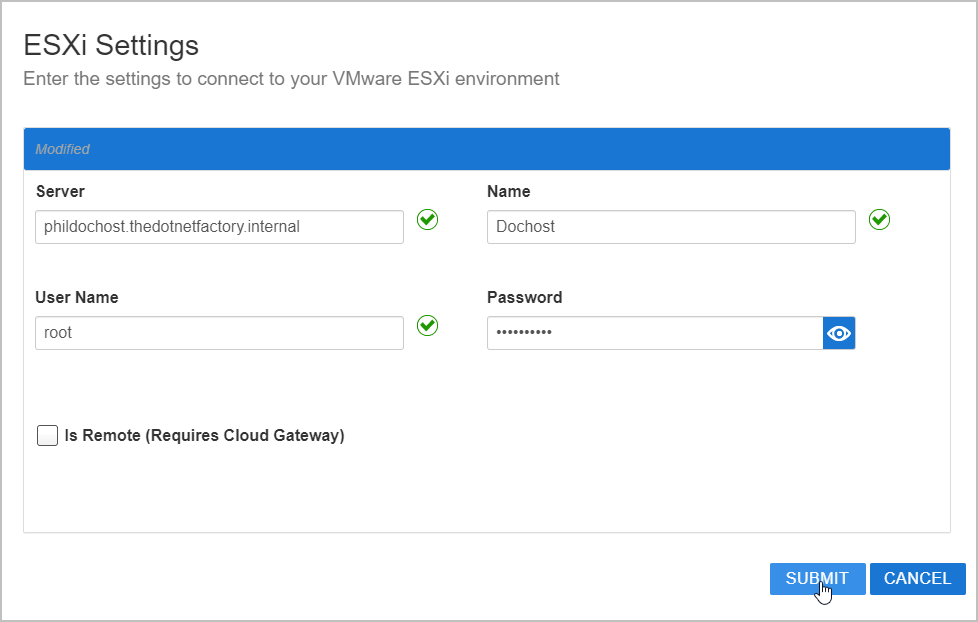
If you selected Is Remote (Requires Cloud Gateway), search for and select one or more cloud gateway servers and then click Submit. You will not see this screen if you did not select Is Remote (Requires Cloud Gateway).
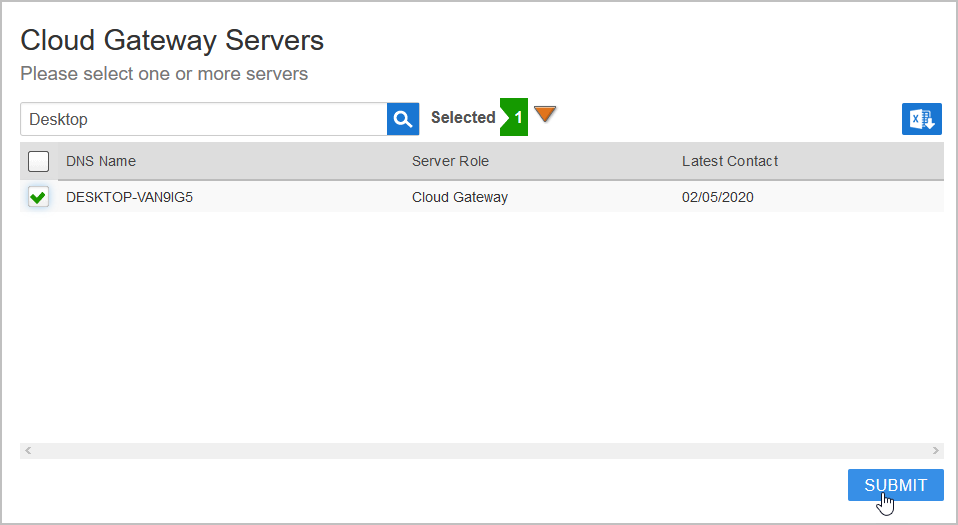
EmpowerID creates the account store and the associated resource system. The next step is to configure the account store settings.
To configure account store settings
From the Account Stores tab of the Account Stores and Systems page, search for the account store you just created and click the Account Store link for it.

On the Account Store Details page, click the pencil icon to put the account store in edit mode.
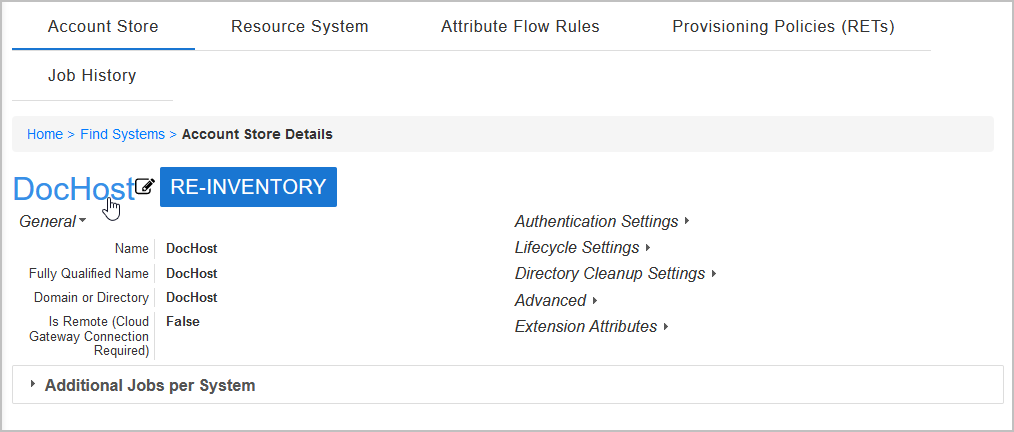
This opens the edit page for the account store. This page allows you to specify the account proxy used to connect EmpowerID to your Windows server as well as how you want EmpowerID to handle the user information it discovers there during inventory. Settings that can be edited are described in the table below the image.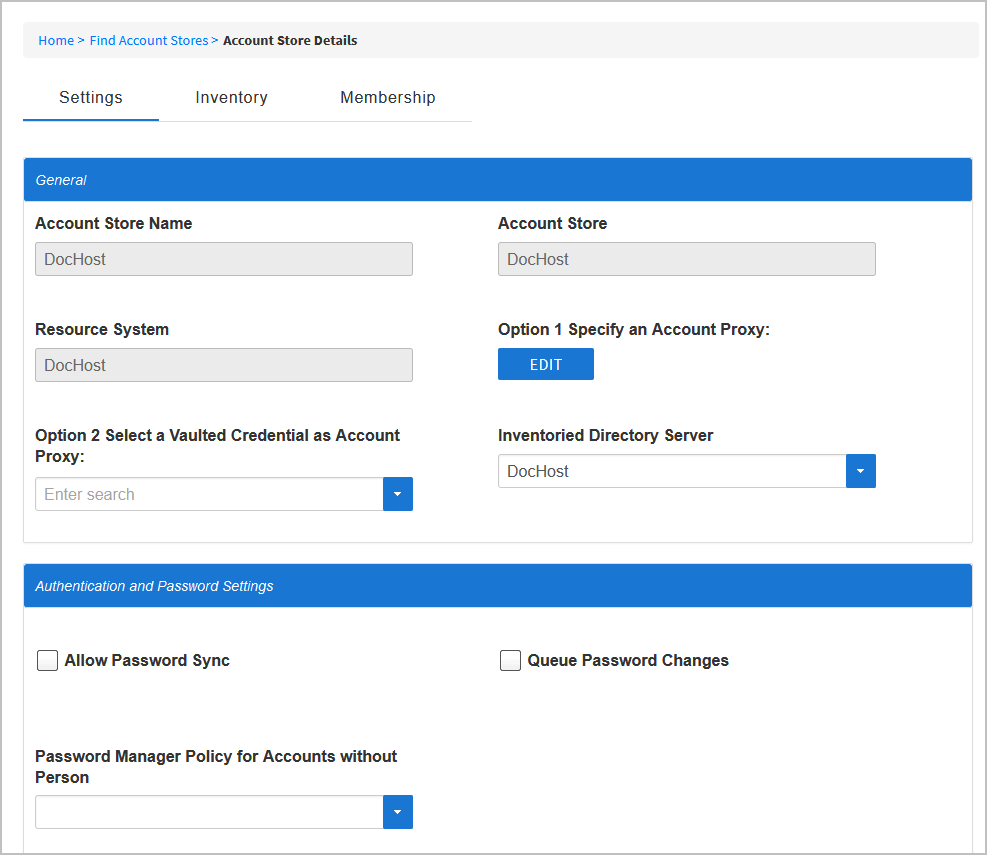
Insert excerpt IL:Account Store Settings IL:Account Store Settings nopanel true Edit the account store as needed and then click Save to save your changes.
Now that everything is configured, you can enable the Account Inbox Permanent Workflow and monitor inventory. Be sure inventory is enabled on the account store settings page.
| Insert excerpt | ||||||
|---|---|---|---|---|---|---|
|
| Insert excerpt | ||||||
|---|---|---|---|---|---|---|
|
| Insert excerpt | ||||||
|---|---|---|---|---|---|---|
|
| Div | ||||||||||||||
|---|---|---|---|---|---|---|---|---|---|---|---|---|---|---|
| ||||||||||||||
IN THIS ARTICLE
|